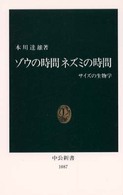Description
The Routledge Handbook of Language and Superdiversity provides an accessible and authoritative overview of this growing area, the linguistic analysis of interaction in superdiverse cities. Developed as a descriptive term to account for the increasingly stratified processes and effects of migration in Western Europe, ‘superdiversity’ has the potential to contribute to an enhanced understanding of mobility, complexity, and change, with theoretical, practical, global, and methodological reach.
With seven sections edited by leading names, the handbook includes 35 state-of-the art chapters from international authorities. The handbook adopts a truly interdisciplinary approach, covering:
- Cultural heritage
- Sport
- Law
- Education
- Business and entrepreneurship.
The result is a truly comprehensive account of how people live, work and communicate in superdiverse spaces.
This volume is key reading for all those engaged in the study and research of Language and Superdiversity within Applied Linguistics, Linguistic Anthropology and related areas.
Table of Contents
Dedication
Acknowledgements
List of illustrations
List of contributors
Introduction - Adrian Blackledge and Angela Creese
PART I – edited by Jenny Phillimore and Li Wei
Language and superdiversity
- Repertoires, registers, and linguistic diversity
- Linguistic (super)diversity, post-multilingualism and translanguaging moments
- Superdiversity perspective and the sociolinguistics of social media
- Superdiversity as a lens to understand complexities
- "All the people speak bad English". Communicating across differences in a super-diverse context
- Superdiversity and linguistic ethnography: researching people and language in motion
- Blurred vision? "Superdiversity" as a lens in research on communication in border contexts
- Using researcher vignettes to explore co-production in a large diverse team: implications for research in superdiverse contexts
- Moving methods online: Researching digital language practices
- Reflecting on the ethics of researching communication in superdiverse contexts
- The multivocality of heritage: Moments, encounters and mobilities
- Dialect as heritage
- Discourses of ‘Chineseness’ and superdiversity
- Talking of heritage: The past in conversation
- Superdiverse heritage and the question of authenticity: Reframing ‘brokenness’, comprehending change
- Language policy and planning and the Olympic Games
- Linguistic practices, social identities and sports
- Football language in the age of superdiversity
- Race, ethnicity and ‘Africa’ in football discourse – perspectives in the age of superdiversity
- Language and sport, physical activity and health among Black and Asian ethnic minority groups
- Language, Superdiversity, and Self-Employment
- Mobile messaging by migrant micro-entrepreneurs in contexts of superdiversity
- Managing superdiversity in multinational companies
- You are now one of us - negotiating ‘fitting in’ in the workplace
- Multilingualism in migrant-tailored businesses: The case of telecommunications multinationals and "ethnic" call shops
- Sociolinguistic superdiversity and asylum
- Legal interpreting in domestic and international courts: Responsiveness in action
-
Joanna Drugan and Krzysztof Kredens
- Superdiversity and the relationship between law, language and translation in a supranational legal order
- The development of deaf legal discourse
- Multilingual education policy, superdiversity and educational equity
- Translanguaging as pedagogy - a critical review
- Adult migrant language education in a diversifying world
- The multilingual University
- Linguistic diversity in online and mobile learning
Alastair Pennycook
Li Wei
Sirpa Leppänen, Saija Peuronen and Elina Westinen
Dirk Geldof
Susanne Wessendorf
PART II – edited by Lisa Goodson and Caroline Tagg
Researching communication in superdiverse contexts
Martha Karrebaek and Constadina Charalambous
Robert Gibb and Julien Danero Iglesias
Lisa Goodson and Caroline Tagg
Jannis Androutsopoulos and Andreas Staehr
Fiona Copland
PART III – edited by Adrian Blackledge and Mike Robinson
Language, superdiversity and heritage
Ana Deumert
Joan Beal
Jing Huang
Mike Robinson
Sabina Vakser
PART IV – edited by Zhu Hua and Janice Thompson
Language, superdiversity and sport
Rachelle Vessey
Lian Malai Madsen
Gunnar Bergh and Sölve Ohlander
Samu Kytölä
Symeon Dagkas and Whitney B. Curry
PART V – edited by Mike Baynham and Kiran Trehan
Language, superdiversity and business
Adrian Blackledge and Kiran Trehan
Caroline Tagg and Agnieszka Lyons
Jiří Nekvapil and Tamah Sherman
Marta Kirilova and Jo Angouri
Maria Sabaté Dalmau
PART VI – edited by Bharat Malkani and Frances Rock
Language, superdiversity and law
Marco Jacquemet
Ludmila Stern
Karen McAuliffe and Aleksandar Trklja
Christopher Stone and Gene Mirus
PART VII – edited by Melanie Cooke and James Simpson
Language, superdiversity and education
Kendall A. King and Martha Bigelow
Jean Conteh
Sari Pöyhönen, Mirja Tarnanen and James Simpson
Mbulungeni Madiba
Agnes Kukulska-Hulme and Mark Pegrum
Index








